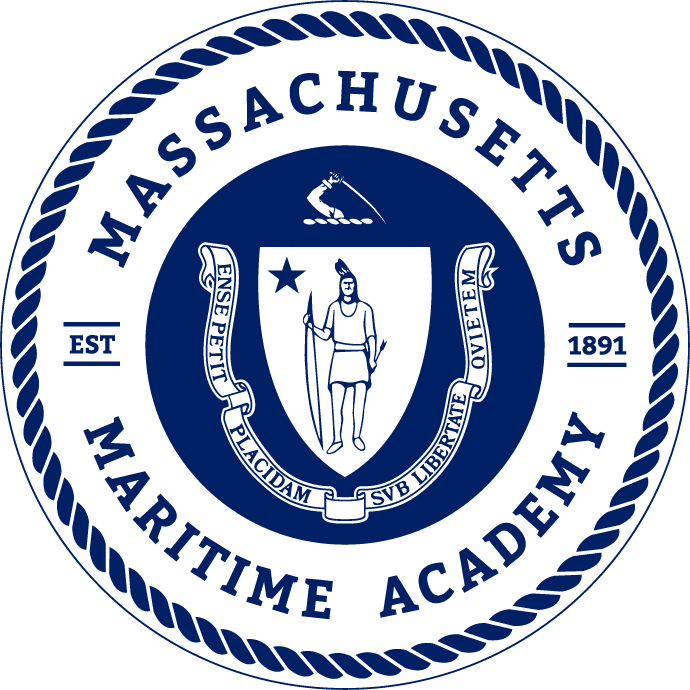Course Description
This course will teach students the fundamental engineering concepts related to the steam and water cycle and steam generation. The students will also learn about various primary and auxiliary engineering systems. The lab familiarizes the students with the safe operation of the engine room and engineering systems on board the training ship and provides students with basic first aid and occupational safety certification. [Lab time required]
This course consists of two 1-hour classes a week for a semester, eight 3-hour labs with practical assessments, and a comprehensive final exam.
Entrance requirements
None
STCW Objectives
Demonstrate knowledge and understanding of the following STCW elements:
- OICNW-C8.4 Knowledge of personal safety
- ABD-C2.1 Chemical and biohazard safety
- ABD-C2.1 Electrical safety
- ABD-C2.1 Lifting techniques and methods of preventing back injury
- ABD-C2.1 Mechanical safety
- ABD-C2.1 Permit to work systems
- ABD-C2.1 Personal safety equipment
- ABD-C2.1 Working in enclosed spaces
- OICEW-A4.1 Characteristics of cooling systems
- OICEW-A4.1 Characteristics of fuel oil systems
- OICEW-A4.1 Characteristics of lubricating oil systems
- OICEW-C1.5 Safety measures to be taken to ensure a safe working environment
- OICEW-C2.1 Safe isolation of shipboard machinery and equipment before personnel are permitted to work
- OICEW-C2.1 Safety measures to be taken for repair and maintenance
- OICEW-D8.4 Knowledge of personal safety
- RFPEW-A1.3 Safe working practices as related to engine-room operations
- RFPEW-A3.2 Know escape routes from machinery spaces
- ABE-A9.1 Electrical emergency procedures
- ABE-A9.1 Electrical isolation procedures
- ABE-A9.1 Safe use and operation of electrical equipment
- ABE-A9.1 Safety precautions before commencing work or repair
- ABE-A9.2 Knowledge of the causes of electric shock
- ABE-A9.2 Precautions to be observed to prevent shock
- ABE-C3.1 Chemical and biohazard safety
- ABE-C3.1 Electrical safety
- ABE-C3.1 Lifting techniques and methods of preventing back injury
- ABE-C3.1 Lockout/tag-out
- ABE-C3.1 Mechanical safety
- ABE-C3.1 Permit to work systems
- ABE-C3.1 Personal safety equipment
- ABE-C3.1 Working in enclosed spaces
- TOPS-X3.2 Protective clothing and equipment
- PSSR-X3.1 Importance of adhering to safe working practices at all times
- PSSR-X3.2 Safety and protective devices available to protect against potential hazards aboard ship
- PSSR-X3.3 Precautions to be taken prior to entering enclosed spaces
- PSSR-X6.1 Importance of obtaining the necessary rest
- PSSR-X6.2 Effects of sleep, schedules, and the circadian rhythm on fatigue
- PSSR-X6.3 Effects of physical stressors on seafarers
- PSSR-X6.4 Effects of environmental stressors in and outside the ship and their impact on seafarers
- PSSR-X6.5 Effects of schedule changes on seafarer fatigue
Topics
Lecture
- Steam Cycle
- 4-Stages of the Steam Cycle
- Ship/vessel Terminology
- Ship Emergency Alarms
- PPE
- Propulsion Modes: Steam, Diesel, Gas Turbine, Electric
- Principles of Thermodynamics
- Basic Steam Table
- Heat Exchangers
- Gages
- Intro to Boilers
- Intro to Steam Turbines
- Condensers
- Pressure and Vacuum Conversions (US-METRIC)
- Temperature Conversions (US-METRIC)
- Intro to Diesel Engines
- Confined Spaces
- Ladder Safety
- LOTO
- Valves
- Pumps
- Fatigue
- Electrical Safety
- Introduction to Electricity
OSHA Lab
- Brief introduction to OSHA
- Electrical, general, safety related work practices 1910.331 - 335
- Lockout/Tagout Procedures 1910.147
- Personal Protective Equipment, Subpart I, 1910.132 - 138
- Respiratory Protection, 1910.134
- Hearing Protection, 1910.195
- Confined Spaces, 1910.146
- Hazard Communication 1910.1200 (Material Safety Data Sheets)
- Bloodborne Pathogens, 1910.1030
- Emergency Action Plans, Fire Prevention, from 1910 Subparts E and L
- Fall Protection – 1926.502 General, guardrails, fall arrest systems
- Hand and portable power tools, general, 1910 Subpart P
- Machine Guarding, general, 1910 Subpart O
Other objectives
- Understanding of steam cycle component pressures temperatures and terminology
- Engine room watch keeping procedures
- Engine room safe working practices including lock-out-tag-out and confined space
- Engine room alarm and evacuation procedures and emergency equipment
- Basic maintenance of machinery and equipment
- Knowledge of personal safety and social responsibility
- Safe operation of boilers
- Fighting fires onboard ship
- Emergency equipment and emergency procedures
- Seafarer Fatigue
